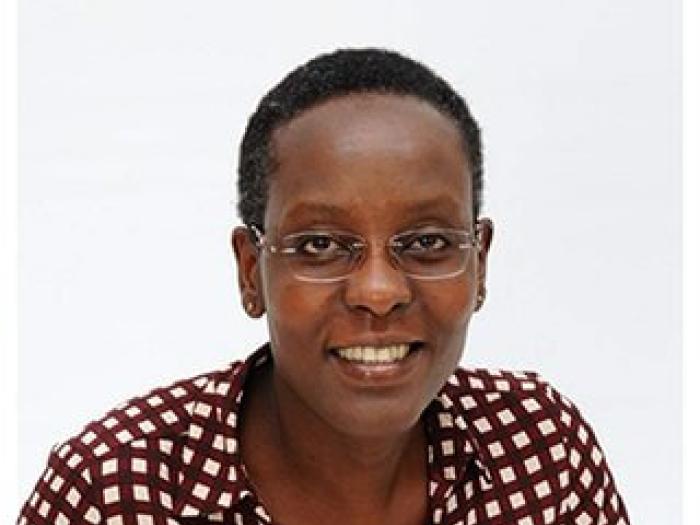Ph.D. in Education - Education and Inequality Concentration
Seeking Equity for All Learners
Become a change agent and search for ways to create opportunities for understanding, disrupting, and dismantling systems of oppression that have adversely and disproportionately affected the lives of marginalized, minoritized (im)migrant and BIPOC student populations.
The Education and Inequality Concentration will study how power, race, place, identity, gender, sexuality, (dis)ability and citizenship affect access to education and social services. We focus on understanding the intersections of communities, families, schools, service providers, and children as part of the larger society and world in which they exist.
Personalized Mentorship
You will be paired with one of our leading faculty mentors with experience in cross disciplinary studies and your selected area of study to guide you in your research development.
Hands-On Experiential Learning
Take part in our larger inclusive cross-disciplinary team as well as a more focused research project. You’ll bring your experience in education to the design, development, data collection, and analyses of a research project.
Principles of Research
Gain a deeper understanding of the responsible conduct of research with human subjects, research ethics, and how to consider the social impact of the work.
The GW Advantage
As a Carnegie R1 institution (very high research activity), the George Washington University is home to world-class faculty that are leading cutting-edge research, along with diverse labs, cross-collaborative initiatives between schools and local organizations, and unparalleled educational and employment opportunities.
Benefit by examining education reform in the policymaking capital of the world, plus gain a wealth of hands-on experiential learning opportunities at nearby diverse school settings.
Degree:
Doctor of Philosophy (PhD) in Education, Education and Inequality Concentration
course delivery:
Foggy Bottom Campus
Program entry:
Fall
- Curriculum Requirements
The following requirements must be fulfilled: 60 credits, including 36 credits in core courses, and 24 credits in the concentration, successful completion of a research project, successful completion of the comprehensive examination; oral defense of both the dissertation proposal and the dissertation.
Code Title Required Core Courses: SEHD 8200 Foundations of Education I SEHD 8201 Foundations of Education II SEHD 8210 Doctor of Philosophy Seminar in Education Research I SEHD 8211 Doctor of Philosophy Seminar in Education Research II Research Methods: 12 credits of doctoral-level research methods coursework, selected in consultation with advisor. At least one course must be in quantitative research methods and one in qualitative research methods. Dissertation: SEHD 8999 Dissertation Research (taken for at least 12 credits) Additional Requirements: Successful completion of a research project. Successful completion of the comprehensive examination. Oral defense of both the dissertation proposal and the dissertation. Course List Code Title Education and Inequality Concentration Requirements: 24 credits in graduate-level courses determined in consultation with the advisor. Course selections are determined by the focus of the concentration and the specific interests of the student.
Example Research Topics
Example topics that students and faculty in the Education and Inequality PhD concentration may explore include:
- Communities, Youth and Schools
- How do students experience systems of privilege and oppression differently as they move between their institutions and home communities and how does navigating these different spaces impact their learning and development?
- How does the history and practices of white supremacy and settler colonialism continue to find resonance in the lives and schooling experiences of students in the United States?
- How do families, communities and schools contribute to the identity development and socialization of minoritized children, adolescents and young adults?
- How do queer students and faculty navigate heteronormative academic spaces?
- Higher Education
- What policies and structures facilitate higher education retention, performance and completion for marginalized, minoritized, (im)migrant, and/or BIPOC student populations?
- How do student affairs practitioners develop an anti-oppressive praxis to counteract systems of oppression that have been historically embedded within institutions of higher education?
- (Dis)Ability & Capability
What are the experiences of individuals identified with (dis)abilities in educational spaces? How do socio-political constructions of (dis)ability and normative ideologies influence the educational and developmental experiences of individuals identified by others (or self-identified) as being (dis)abled ? How do hierarchies of capability interact with race, class, and/or gender over the course of an individual’s educational and developmental experiences?
- Global Difference and Belonging
How do schools and educational programs influence adolescent national and racial identity, and perspectives of belonging? How do indigenous and subaltern peoples as well as members of other marginalized groups (minoritized communities, working children, children-affected by conflict) experience and make sense of the education system of the majority, in countries outside the US?
- Educational Policy and Leadership
How have educational institutions (k-20) responded to the ongoing national protests against racial violence? How do the projects of policing, militarism, and carcerality structure the learning and teaching experiences of teachers, families, and students in and out of the United States? How might narratives of leadership practice inform mechanisms to counter hegemonic systems, policies and unjust practices in schools and/or educational institutions?
- Pedagogy
- How can anti-oppressive pedagogies inform how we teach and learn, how we make choices regarding teaching and learning enactments of inclusion and exclusion, of marginalized and minoritized people and communities in education?
- What is the experience and impact of stereotyping on student performance?
- Inner-Lives in Educational Spaces
What is the subjective experience and inner meaning of racialization, gendering, and other forms of social normalization for particular students, teachers, and community members? How might practices of self-analysis, self-reflexivity, and subjective reconstruction (e.g., autobiography, psychoanalysis, and aesthetic creation and perception) inform educational projects committed to understanding and dismantling systems of oppression?
Apply Now
The Education & Inequality Concentration isn't currently accepting applications. We invite you to explore our other PhD in Education programs.
To learn more about the program, admission process, and upcoming events, please connect with the GSEHD Admissions Team at docinfo![]() gwu [dot] edu (docinfo[at]gwu[dot]edu) or 202-994-9283.
gwu [dot] edu (docinfo[at]gwu[dot]edu) or 202-994-9283.
To be considered for admission, applicants must submit the online application form as well as the following required supporting documents. There is no application fee.
- Prerequisite: Master's Degree in a field relevant to the proposed cross-disciplinary graduate study
- Curriculum Vitae
- Transcripts from all previously attended colleges or universities
- Statement of Purpose: An essay of less than 1200 words, in which the candidate states his/her purpose in undertaking cross-disciplinary graduate study including: (a) rationale for seeking a Ph.D. in the specified cross-disciplinary research focus; (b) articulation of personal research interests; and (c) how his/her background and related qualifications have prepared him/her for this work and will align with long term goals. Please list your specified concentration at the top of your statement of purpose.
- 3 Letters of Recommendation, with one preferred from a professor in the applicant’s Master’s degree program. Letters will document potential for analytical thinking, research skills/experiences, scholarly writing capabilities, and capacity to explore cross-disciplinary/complex issues.
- Interview with Faculty: Interviews will include a presentation by the applicant of her/his work, and the skills and knowledge that make them prepared to undertake PhD study.
- Writing Sample (Optional): Candidates are encouraged to submit a current writing sample. The sample should reflect the candidate’s abilities to articulate complex ideas and to utilize evidence in support of his/her arguments. The writing sample should also provide an example of the candidate’s research skills, as well as her/his engagement with scholarship in pursuing his/her research interests.
Please note: The GRE is not required.
*Additional application requirements may exist for international applicants.
Tuition & Financial Aid
We know embarking upon graduate school is a big decision - due in part to the costs of attending. At GW, we understand the time and thought behind making graduate school work for you. Please take a moment to learn more about the options and opportunities available to help fund your graduate education.
Graduate tuition is charged per credit hour, unless otherwise noted. Rates vary by program and location.
The tuition rate for the PhD in Education - Education and Inequality Concentration program is $1,960 per credit hour.
This program requires 60 credits.
Please note: Additional fees may apply for international students, late fees, etc. Current tuition rates may be updated during the year.
*Summer 2025, Fall 2025 and Spring 2026
Scholarships are available to eligible admitted students. Review eligibility requirements and learn more about funding your education >

Assistant Professor, International Education and International Affairs


Interim Dean, Graduate School of Education and Human Development; Professor, Educational Research


Co-Department Chair and Associate Professor, Counseling and Human Development


Department Chair and Associate Professor, Special Education and Disability Studies

Assistant Professor, Higher Education Administration; Director of Diversity, Equity, and Inclusion Initiatives




